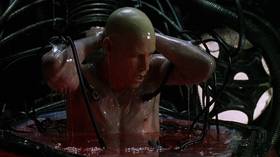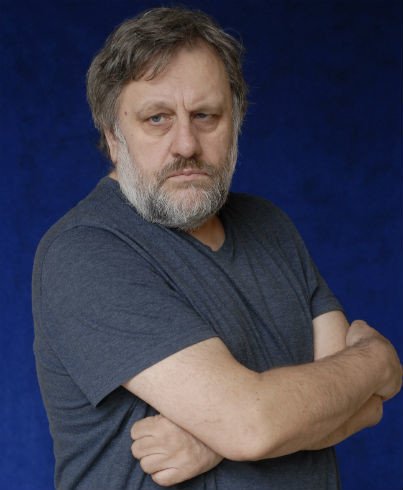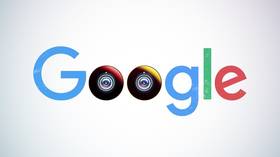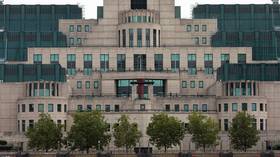Slavoj Zizek: The Schmidt-Cuomo digital future is a highway to the Matrix

The basic functions of New York state could soon be “reimagined” under the alliance of Governor Andrew Cuomo and Big Tech personified. Is this the testing ground for a dystopian “no-touch” future?
It may appear that the basic choice we have in coping with the pandemic is the one between the Trump way (return to economic activity in the conditions of market freedom and profitability, even if this means thousands of more deaths) and what our media decry as the Chinese way (total digitalized state control of individuals).
However, in the United States, a third option is now propagated by the New York Governor Andrew Cuomo and ex-CEO of Google Eric Schmidt, with Michael Bloomberg plus Bill and Melinda Gates in the background – Naomi Klein of the Intercept called this option a “Screen New Deal.” It promises safety from infection while maintaining all the personal freedoms liberals care for – but does it have a chance to work?
Also on rt.com Government by billionaires? Cuomo names former Google CEO to join Gates & Bloomberg in drafting post-pandemic ‘reforms’In one of his meditations on death, the stand-up comedian Anthony Jeselnik says about his grandmother: “We thought she died happily in her sleep. But the autopsy revealed a horrible truth: she died during autopsy.” This is the problem with Schmidt’s autopsy of our predicament: his autopsy and its implications make our predicament much more catastrophic than it is.
Cuomo and Schmidt announced a project to “reimagine New York state’s post-Covid reality, with an emphasis on permanently integrating technology into every aspect of civic life.” In Klein’s view, this will lead to a “permanent — and highly profitable — no-touch future,” in which there is no cash and no need to get out of the home to spend it. Every possible service and commodity is ordered online, delivered by drone, “then screen ‘shared’ on a mediated platform.” And making this future tick would be the exploited masses of “anonymous workers tucked away in warehouses, data centers, content moderation mills, electronic sweatshops, lithium mines, industrial farms, meat-processing plants, and prisons.”
There are two key features that immediately strike the eye in this description.
First, it is the paradox that those privileged who can afford to live in the no-touch space are also the most controlled: their entire life is transparent to the true seat of power, the Big Tech and government combine. Should the networks that are the lifeblood of our existence really be in the hands of private companies like Google, Amazon, and Apple, companies which, merged with state security agencies, will have the ability to censor and manipulate the data available to us or even to disconnect us from public space? Remember that Schmidt and Cuomo call for immense public investments into these companies – should the public then not own them and control them? In short, as Klein proposes, should they not be transformed into nonprofit public utilities? Without a similar move, democracy in any meaningful sense is de facto abolished since the basic component of our commons – the shared space of our communication and interaction – gets under private control.
Secondly, the Screen New Deal intervenes into class struggle at a very precise point. The viral crisis made us fully aware of the crucial role of what David Harvey called the “new working class”: caretakers in all their forms, from nurses to those who deliver food and other packages, empty our trash bins, etc. For those of us who were able to self-isolate, they remained our main contact with others in their bodily form, a source of help but also of possible contagion. The Screen New Deal is a plan to minimize the visible role of this caretaker-class who have to remain non-isolated, largely unprotected, exposing themselves to viral danger so that we, the privileged, can survive in safety – some dream that robots will even take care of the old and keep them company… But these invisible caretakers can strike back, demanding better protection: in the meat-packing industry in the US, thousands of workers already got Covid, and dozens died, and similar things are going on in Germany. New forms of class struggle will explode here.
At the end of the Screen New Deal, if we bring this project to its hyperbolic conclusion, there is the idea of a wired brain, of our brains directly sharing experiences in a Singularity, a divine collective self-awareness. Elon Musk, another perceived tech genius of our time, has recently said he believes human language would be obsolete within 10 years, and if some would still use it, it would be “for sentimental reasons.” Being the boss of Neuralink, he said he plans to connect a device to the human brain within 12 months.
Also on rt.com Elon Musk says human language will be OBSOLETE in 10 years, after struggling to pronounce his baby’s name on Joe RoganDoes this vision, when merged with the homebound future extrapolated by Klein from the ambitions of Cuomo’s Big Tech symbiotes, not recall the situation of humans in ‘The Matrix’? Protected, physically isolated and speechless in our isolated bubbles, we will be spiritually united more than ever, while our high-tech overlords profit, and a multi-million mass of invisible humans toil in the woodwork – a nightmarish vision if there ever was one.
In Chile, during the protests that erupted in October 2019, one of the graffiti on the walls said: “Another end of the world is possible.” This should be our answer to the Screen New Deal: yes, our old world has come to an end, but a no-touch-future is not the only option, another end of the world is possible.
Think your friends would be interested? Share this story!
The statements, views and opinions expressed in this column are solely those of the author and do not necessarily represent those of RT.
















